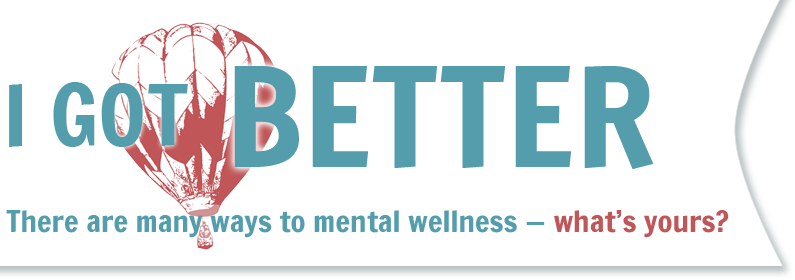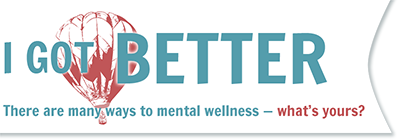Nothing is Impossible
By Ellen

During your mental health care, have you often felt hopeful about your chance of getting better?
Yes. My greatest hope has come from meeting other people who have recovered and made good lives for themselves. I see what is possible and I keep moving forward. My spiritual faith has also been a great source of hope. Now that I have been actively working on my recovery for about 15 years, I can look back and see what I’ve done to get better. I am beginning to inspire myself!
During your mental health care, have you often felt hopeless about your chance of getting better?
Yes. In the beginning, when I first got a diagnosis of Borderline Personality Disorder and Bipolar Disorder, I went out and read lots of books. The literature was really negative and hopeless. My health care providers were careful not to promise too much, even though they tried to stay positive.
Has a mental health provider ever told you that you could reach a personal goal despite your psychiatric diagnosis (for example, education, career, independent housing, relationship, children, etc.)?
Yes. My psychiatrist told me that she thought I could be successful as a graduate student and as a person with a job. I didn’t believe her at first. But it’s turned out to be true!
Has a mental health provider ever told you that you could not reach a personal goal because of your psychiatric diagnosis (for example, education, career, independent housing, relationship, children, etc.)?
Yes. I had a nurse practitioner tell me that I would steadily get worse and that I would be lucky if I could just stay out of the hospital.
If you overcame hopelessness that you could get better from a mental health or emotional problem, was there a turning point for you?
When I went to work as a peer supporter, I realized that I had something valuable to give. That gave me hope and some self-confidence. I really was able to help people–I am good at being a caring comrade. My worst experiences of the past turned out to be good for something. When I saw that I could turn my life around this way, I began to think there was hope for me to keep getting better.
Tell us what recovery means to you. How would you define recovery from mental health or emotional problems in your own words?
Recovery means having a meaningful and purposeful life. It means feeling proud of who you are and what you can accomplish. It means being able to work and contribute to my family and my community. It also means being able to have loving and healthy relationships with my family members and friends. It means being in control of yourself and your life–making your own decisions and learning like everyone else.
If you could send a brief message to someone receiving mental health care today who is feeling hopeless about getting better, what would you say?
Let me tell you my story. You can rest your head on that hope and be renewed. Nothing is impossible.
Can you give examples showing you have gotten better from a mental or emotional problem, such as how you are doing well or accomplishing goals you have chosen?
I have raised a daughter on my own–she’s in college now and has lots of friends. We have a great relationship. I have just bought my first house. I have a wonderful, loving intimate partner with whom I share a very satisfying love life. I have a responsible job that gives me the opportunity to use almost all of my strengths. My family relationships are completely healed. I am very close to completing my PhD in Research Psychology. I never thought I could manage any of these things.


